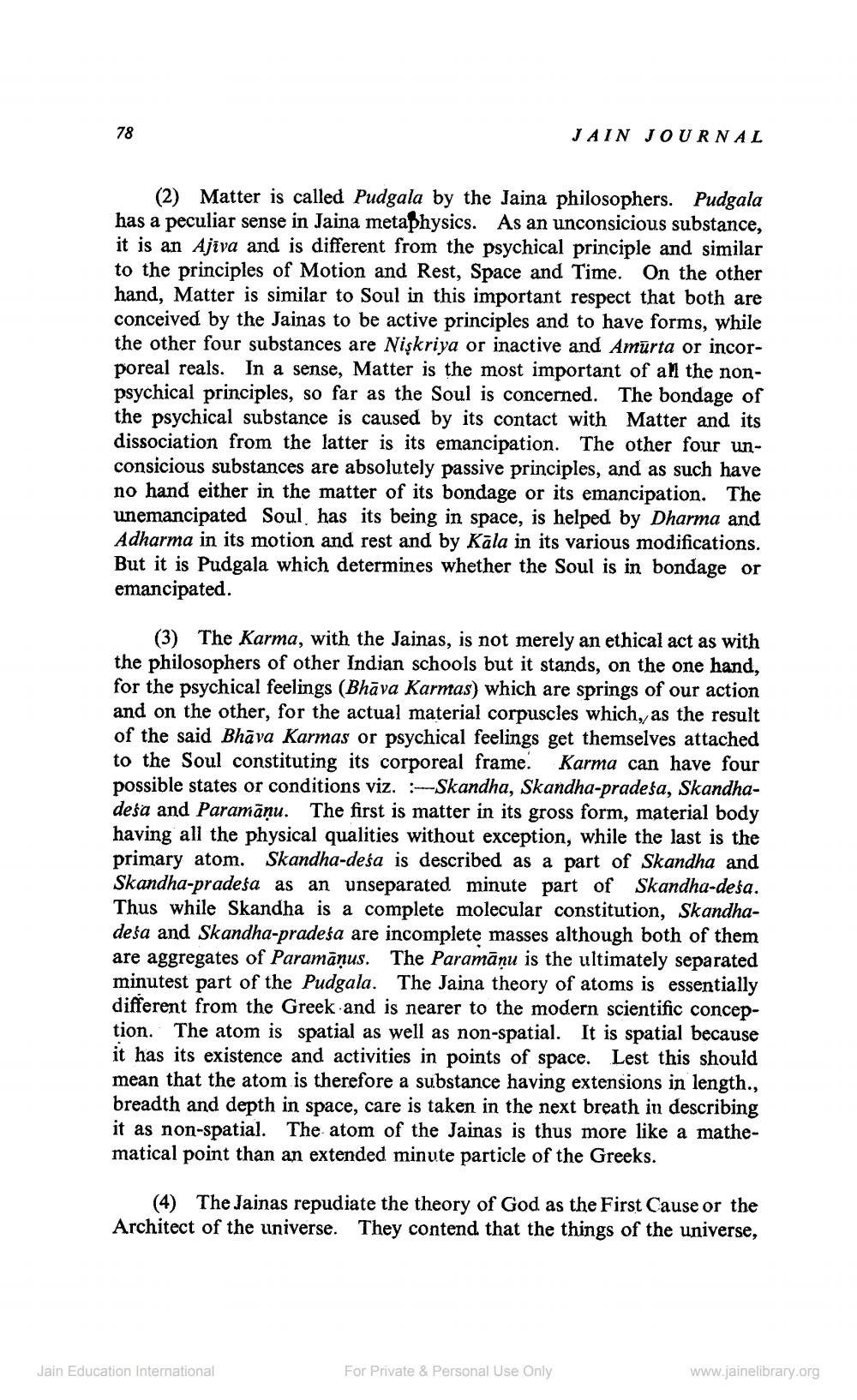________________
JAIN JOURNAL
(2) Matter is called Pudgala by the Jaina philosophers. Pudgala has a peculiar sense in Jaina metaphysics. As an unconsicious substance, it is an Ajiva and is different from the psychical principle and similar to the principles of Motion and Rest, Space and Time. On the other hand, Matter is similar to Soul in this important respect that both are conceived by the Jainas to be active principles and to have forms, while the other four substances are Niskriya or inactive and Amūrta or incorporeal reals. In a sense, Matter is the most important of all the nonpsychical principles, so far as the Soul is concerned. The bondage of the psychical substance is caused by its contact with Matter and its dissociation from the latter is its emancipation. The other four unconsicious substances are absolutely passive principles, and as such have no hand either in the matter of its bondage or its emancipation. The unemancipated Soul has its being in space, is helped by Dharma and Adharma in its motion and rest and by Kāla in its various modifications. But it is Pudgala which determines whether the Soul is in bondage or emancipated.
(3) The Karma, with the Jainas, is not merely an ethical act as with the philosophers of other Indian schools but it stands, on the one hand, for the psychical feelings (Bhāva Karmas) which are springs of our action and on the other, for the actual material corpuscles which, as the result of the said Bhāva Karmas or psychical feelings get themselves attached to the Soul constituting its corporeal frame. Karma can have four possible states or conditions viz. :-Skandha, Skandha-pradesa, Skandhadesa and Paramānu. The first is matter in its gross form, material body having all the physical qualities without exception, while the last is the primary atom. Skandha-deśa is described as a part of Skandha and Skandha-pradesa as an unseparated minute part of Skandha-desa. Thus while Skandha is a complete molecular constitution, Skandhadesa and Skandha-pradeśa are incomplete masses although both of them are aggregates of Paramānus. The Paramānu is the ultimately separated minutest part of the Pudgala. The Jaina theory of atoms is essentially different from the Greek and is nearer to the modern scientific conception. The atom is spatial as well as non-spatial. It is spatial because it has its existence and activities in points of space. Lest this should mean that the atom is therefore a substance having extensions in length., breadth and depth in space, care is taken in the next breath in describing it as non-spatial. The atom of the Jainas is thus more like a mathematical point than an extended minute particle of the Greeks.
(4) The Jainas repudiate the theory of God as the First Cause or the Architect of the universe. They contend that the things of the universe,
Jain Education International
For Private & Personal Use Only
www.jainelibrary.org




